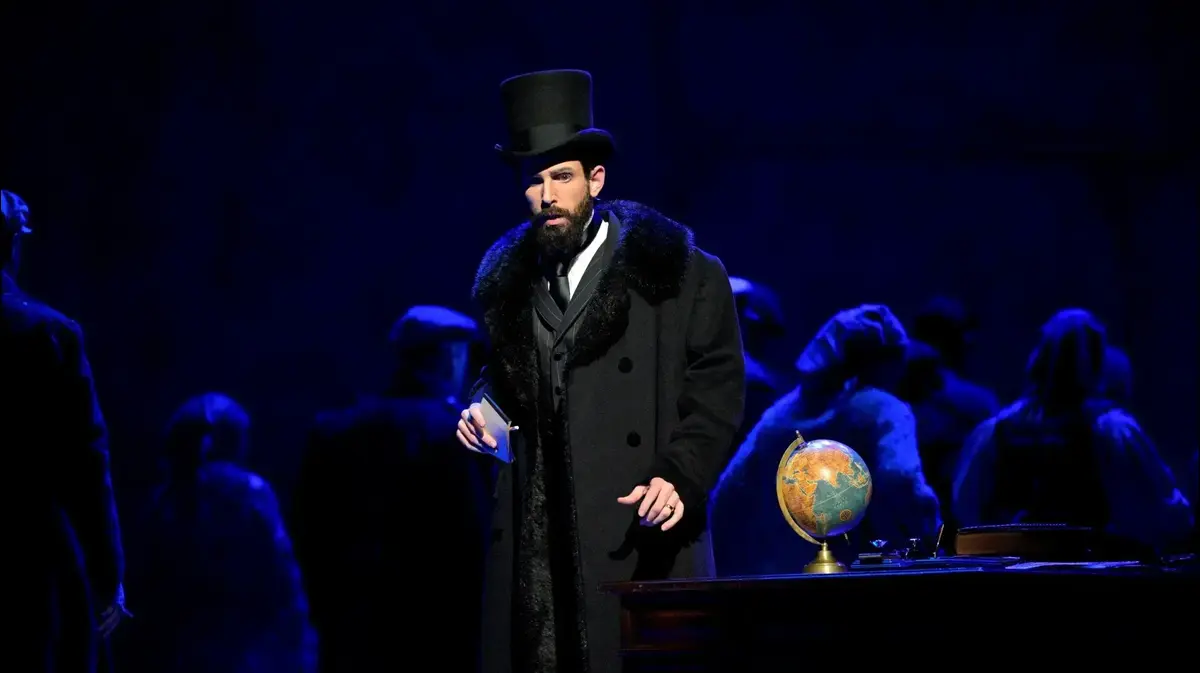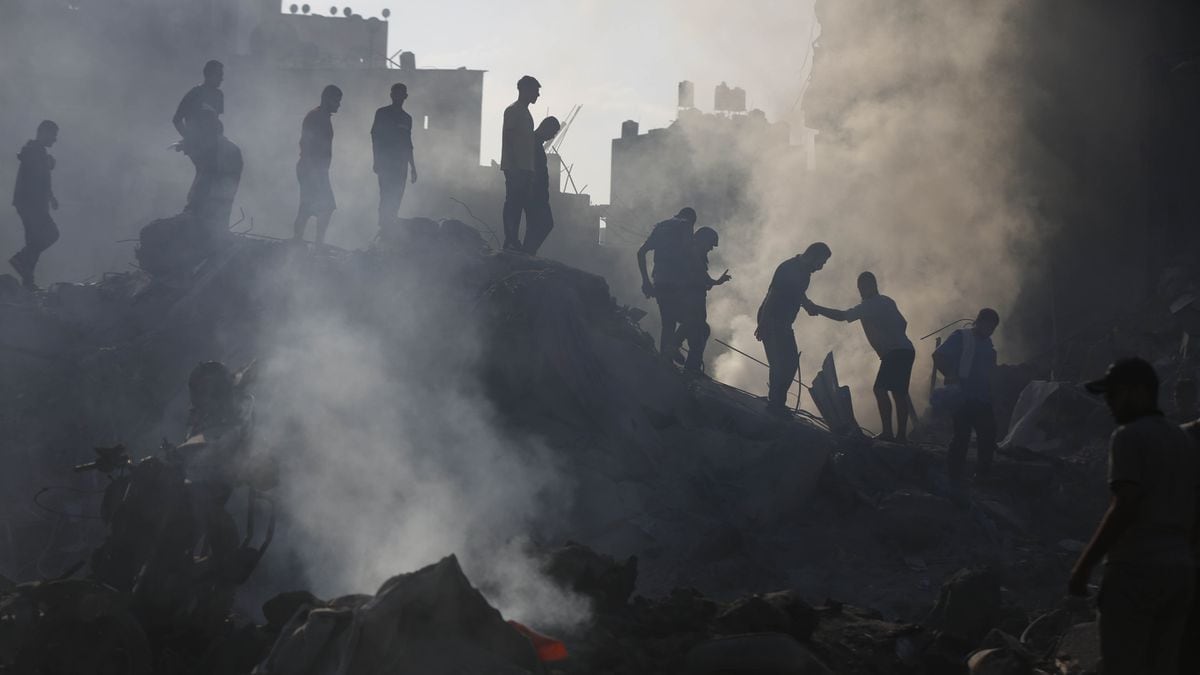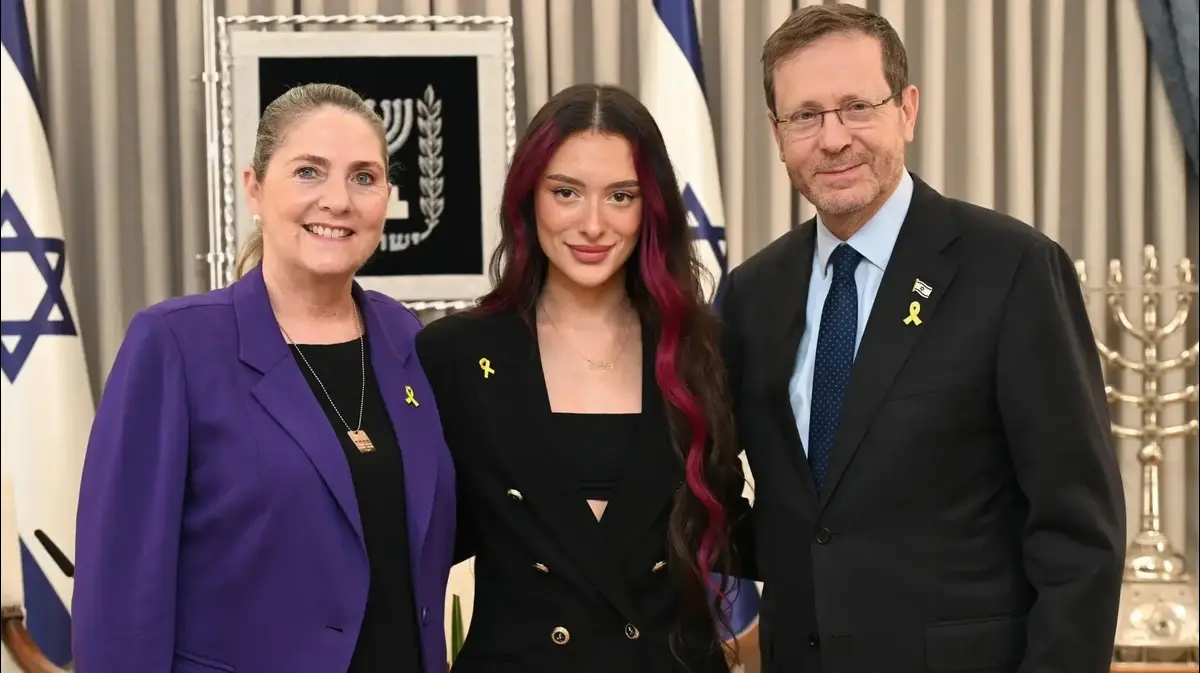We weren't taught this in school, but Herzl hated Jerusalem. His visit to the city, at the end of the 19th century, did not become a pleasant memory, he says. In his diary, he described "a dank city, full of cruelty, jealousy and filth pervasive through the musty alleys." He says that he was not moved by the visit to the Western Wall, and detailed that if the dream came true and the Jews settled in Jerusalem, he would act to burn the entire city - except for the holy sites - and establish a new city in its place.
The Zionism Herzl dreamed of was not Middle Eastern, and certainly not Jerusalemite. She was European. In fact, he wanted the official language of the Jewish state to be German at all. He couldn't imagine people speaking the old-fashioned language of the Bible, when you could speak Wagner's. He wrote his book "The Jewish State," which became the founding work of the Zionist movement, for two months at the Castillo Hotel in Paris. During the day he worked on the book, and almost every evening visited the National Opera House.
Music was for the contractor of the state a respite for the soul. "On evenings when no opera was performed, I would doubt the health of my mind," he wrote in his memoirs. Herzl was particularly influenced by Richard Wagner's opera Tannhäuser, whose sounds were even chosen to open the Second Zionist Congress. Ironically, in the Jewish state it is forbidden to perform the same opera that was the soundtrack to Herzl's vision.
In other words, Herzl's Zionist dream came to life with opera music in the background. In the prophetic novel Altneuland, he described in detail the world of Hebrew culture that would rule the Jewish state. "This month, an excellent French theater company and the best company in Italy visit Haifa," the book says, but its heroes prefer to see a Jewish performance. "Are there any Jewish plays?" asks one of the gentlemen who came from Europe, and receives a humorous response: "What, haven't you heard that the theater converted?" The heroes are debating between a visit to the National Theater, which presents a biblical play called "Moses," or to the local opera house, which presents the opera "Shabtai Zvi" about the famous Jewish false prophet. Herzl's fantasy ended, as expected, in Haifa's magnificent – and imaginary – opera house. The heroes of the novel, by the way, do not stop chatting and explaining to each other the plot of the opera during the campaign. Even Herzl's Zionist utopia did not succeed in importing European politeness here.
Even in his dreams, he knew that Israelis would not be as polite as in Europe. Oded Reich as Herzl in Theodor (Photo: Yossi Zweker)
This week in Tel Aviv, a Zionist dream over 120 years old came true. At the Opera House in Tel Aviv – the first Hebrew city, named after the translation of the book "Altneuland" into the holy language – an original Israeli opera called Theodore, based on Theodore, was performed. This is not the first opera written or translated into Hebrew (in fact, there have already been about 90 of them), but the feeling is that this is the first opera written in modern Israel. One that is not enough to know Hebrew in order to understand it, but one has to be really Israeli.
Needless to say, even before referring to the work itself, this is a rare event. It is tickling to write "historical event", although in the shadow of Theodor Herzl's story, the misuse of the word "history" should be avoided. To sit in a packed auditorium, at the world premiere of a new opera - in the presence of the President of Israel - and more importantly, in light of the occasion, in the presence of the composer, the liberist - and the original team of soloists.
Avid opera lovers love to explore the origins of their favorite works. Crazy people can tell why Mozart wrote certain passages in his operas in a certain way, in order to adapt them to the soloists he likes (or in more cases, hated, after the famous aria of the Queen of the Night in "The Magic Flute" written to fail the singer). And now, the year is 2023 and we have the opportunity to see how original opera pieces were written out of nothing for Israeli-born soloists.
From now until eternity, every opera singer who performs the baritone pieces of the adult Herzl in this opera will step into the shoes of Oded Reich, a soloist who has already managed to captivate the subscribers of the Israeli Opera with a variety of productions. He charmed them by performing Mozart classics in the roles of Papageno, Count Almaviva, Officer Guglielmo or Don Giovanni - and now for the first time he has entered an original work, written just to his size. Within the world of opera, which naturally leans on the past, it is so rare to dwell on the present, and the future.
The duet between the young Herzl and the old. Theodor (Photo: Yossi Zweker)
The very existence of the historic event (here, I surrendered to myself at the end) on a night when Tel Aviv is bombarded by missiles, and outside the opera house an alarm is sounded that does not penetrate the acoustic space of the hall, was so moving - so much so that there was concern that the new work written by composer Jonathan Canaan to a libretto by Ido Riklin would not live up to expectations. Somewhere during the second picture, when the recitatives advancing the plot turned out to be essentially Israeli, in the best sense possible, all the fears were cleared.
So what do I mean by Israeli opera and not Hebrew? Well, first, it was possible to understand everything that was happening on stage without any problem. It sounds obvious, but it's not always the case in operas. In fact, most Italians who go to see classical opera will not be able to understand the plot without subtitles. The clarity of the language, and the choice of words written precisely for the performers, made the opera very clear. For a moment you would think we were watching a musical and not an opera.
The background is Europe. Once Paris, once Vienna, but the language is the most Israeli Hebrew there is. Here is Julie, Herzl's forgotten wife, threatening him with two slaps as if she were Ron Huldai's character in "A Wonderful Land." Here she is chuckling at him and saying the explicit words, "Herzl said." Every Hebrew speaker in the world understands the literal meaning of this pair of words, but only Israelis understand the genius of weaving these words into a work that presents Herzl as a more human figure. Only Israelis will understand the meaning of singing "There is nothing like Wagner," over and over again, on an Israeli stage.
Amazing opera singers, and great actors too. Oded Reich and Anat Cherny in Theodor (Photo: Yossi Zweker)
The creators take for themselves great artistic freedom in terms of reconstructing history. Thus Herzl's practical plan for mass assimilation of world Jewry becomes a spiritual event, including a disturbing visit to the church (one of the highlights of opera, musically). The timeline of the events also misses the truth, in order to open the musical when Herzl arrived in Paris for press coverage of the Dreyfus affair, which happened after Herzl had already shelved the plan for mass Christianity. Does it matter? On the musical level - of course not, but in a work that certainly tries to present a complex humanistic and liberal statement, it might have been better to lean a little more on historical truth.
In an attempt to portray a more complex character of Herzl, we accompany him to Pigalle, the red light district of Paris, where he turns to the mercy of a young prostitute. On the one hand, an interesting choice based on historical facts, on the other hand, it is evident that the creators spared us from knowing the not so pleasant truth about the illustrious state contract, and combined two different matters into one picture. The first issue is Herzl's contracting gonorrhea in Vienna as a 20-year-old student, and the second is Herzl's 26-year-old infatuation with a 13-year-old girl. Both cases are described in detail in his diaries, in a way that can be said to have not aged well. That's what Google is for, for those who really want to know more.
This picture, like the entire opera, corresponds quite a bit with Lin-Manuel Miranda's musical "Hamilton," whether it was done consciously or not. Theodor Herzl and Alexander Hamilton are considered crazy because they dream big dreams, they do it at the expense of their family, giving in to earthly physical desires brings their end closer to them, both are accused by their wives of writing all the time instead of investing in them, and both women are accused by their husbands that history will not remember them - precisely in order to get a big role in the musical work that will be written about them in the future. Hey, there's even a duel between friends (in "Hamilton" with guns, in "Theodore" with swords) to prove masculinity, including dramatically introducing the rules of battle. Same story, different genre.
Like Hamilton, on Theodore, some of the musical highlights come with a beer in hand. "The blood heats up, and the glass is empty," she sang from the choir in the catchy wine song, which continued to play in the audience's ears even on their way home. It doesn't happen much in opera, but when it does it says something.
The resemblance to "Hamilton" cries out to the eye. The duel scene in "Theodore" (Photo: Yossi Zweker)
Reich in the title role is going to receive a lot of compliments for his role, and rightly so - but in fact the entire blue-and-white cast of the opera proves itself throughout the evening. Also prominent are Noam Heinz as the young Theodor and Shaked Stroll as the trousers of Paul, Herzl's Jewish classmate in Vienna. The combination of Reich and Anat Charney, who plays his wife Julie, turns out to be a great stroke of brilliance. The timbre of their voices connects perfectly, and no less importantly - they are both great actors who manage to convey the burning hatred between the two characters in an almost comic way (it's not clear if this was the poet's intention, but I laughed quite a bit during their fights).
With the exception of a few spectacular moments (the visit to the church, Julie's aria at the opening of Act II, and the final scene), the music Canaan wrote for the opera does not challenge the opera orchestra too much, under the confident direction of Nimrod David Pepper. It's a wise test, allowing viewers to concentrate on the work as a whole, without letting the music take over the business. To be clear, that doesn't mean the music isn't good. Vice versa. There wasn't a single dull musical moment over more than two net hours of opera. It's really not a trivial matter.
The bottom line is that the choice of Herzl as the central theme for a new and modern opera has proven successful and even relevant. In the last scene of the opera, in which Reich reads excerpts from The Jewish State, which presents Herzl's utopian state as a refuge for people of all religions and races – a particularly critical reminder these days that Herzl's vision was for a "Jewish state" and certainly not a "Jewish state" – the audience erupted in thunderous applause. I've been going to the opera for years, and I've never heard an audience clap during a piece of singing, and actually interrupt them. I sat close enough to the stage to see that it didn't bother the Reich. Truth be told, this human interference only made his performance more powerful.
- culture
- stage
Tags
- Herzl
- Herzl said
- Benjamin Zeev Herzl
- Israeli Opera















